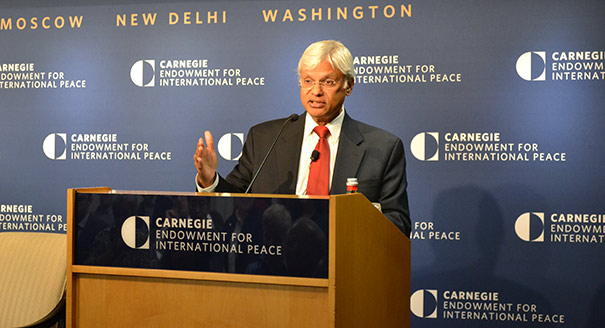Registration
You will receive an email confirming your registration.
The unyielding antagonism between India and Pakistan remains one of the greatest tragedies of Asian politics. This enduring rivalry has undermined peace and prosperity throughout South Asia, and it has inhibited the economic development of close to one-fifth of the human race. As their troubled bilateral relations raise fears of continuing crises, can any dialogue deliver?
In a new report, Are India-Pakistan Peace Talks Worth a Damn?, Carnegie’s Ashley J. Tellis analyzes the poor prospects facing the India-Pakistan peace process. He argues that because the fundamental divide between the two nations is vast and unbridgeable, a lasting solution must be anchored largely in an acceptance of the facts on the ground. Tellis discussed the difficulties associated with any India-Pakistan peace process and if the international community can play a productive role. He was joined by Alyssa Ayres, George Perkovich and C. Raja Mohan.
Alyssa Ayres
Alyssa Ayres is senior fellow for India, Pakistan, and South Asia at the Council on Foreign Relations (CFR). At CFR her work focuses on India’s role in the world, and on U.S. relations with South Asia.
C. Raja Mohan
C. Raja Mohan is director of Carnegie India. A leading analyst of India’s foreign policy, Mohan is also an expert on South Asian security, great-power relations in Asia, and arms control.
George Perkovich
George Perkovich is the Ken Olivier and Angela Nomellini chair and vice president for studies at the Carnegie Endowment for International Peace, overseeing the Technology and International Affairs Program, the Nuclear Policy Program, and the South Asia Program.
Ashley J. Tellis
Ashley J. Tellis holds the Tata Chair for Strategic Affairs and is a senior fellow at the Carnegie Endowment for International Peace, specializing in international security and U.S. foreign and defense policy with a special focus on Asia and the Indian subcontinent.
